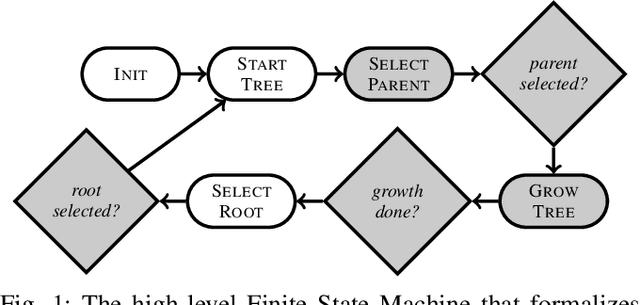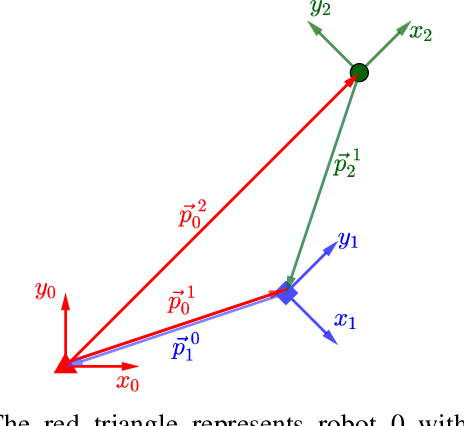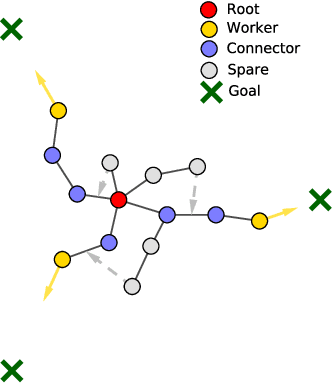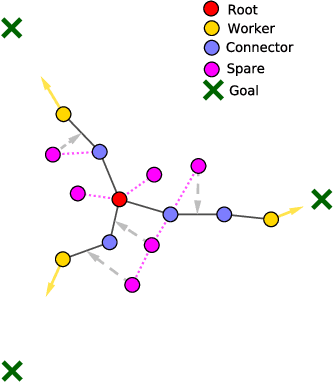Decentralized Connectivity-Preserving Deployment of Large-Scale Robot Swarms
Paper and Code
Jun 01, 2018



We present a decentralized and scalable approach for deployment of a robot swarm. Our approach tackles scenarios in which the swarm must reach multiple spatially distributed targets, and enforce the constraint that the robot network cannot be split. The basic idea behind our work is to construct a logical tree topology over the physical network formed by the robots. The logical tree acts as a backbone used by robots to enforce connectivity constraints. We study and compare two algorithms to form the logical tree: outwards and inwards. These algorithms differ in the order in which the robots join the tree: the outwards algorithm starts at the tree root and grows towards the targets, while the inwards algorithm proceeds in the opposite manner. Both algorithms perform periodic reconfiguration, to prevent suboptimal topologies from halting the growth of the tree. Our contributions are (i) The formulation of the two algorithms; (ii) A comparison of the algorithms in extensive physics-based simulations; (iii) A validation of our findings through real-robot experiments.
 Add to Chrome
Add to Chrome Add to Firefox
Add to Firefox Add to Edge
Add to Edge